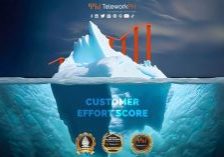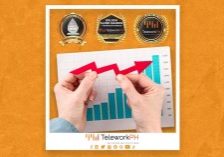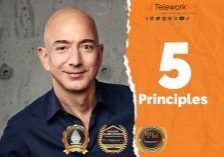SEO or PPC: Which Digital Marketing Strategy Should You Choose?
TeleworkPH
Published: September 18, 2020
There’s this one question in the world of digital marketing that’s always in constant discussion with marketing practitioners. Which is more effective in digital marketing, SEO, or PPC?
In this post, let’s look at the advantages of both SEO and PPC, use cases of both strategies, and some tips in choosing the right marketing channel for your business. But first, let’s define the two:


Let us help you scale your business. Book a
FREE
value-bomb
strategy session with our
Outsourcing Specialist NOW!

SEO and PPC Definition
What is SEO?
SEO (Search Engine Optimization) – simply means optimizing your content to let your audience or customers naturally discover your business. There are many facets to handle when it comes to SEO. There’s your technical optimization, on-page optimization, and off-page optimization. Not to mention, it’s more long-term focused as opposed to PPC. SEO efforts usually take a long time to bear fruit, but the benefits are also there to stay for a while. SEO can also be called as ‘organic search’.
What is PPC?
PPC (Pay-Per-Click) – takes semblance to traditional advertising. It means paying digital ad space that your audience or customers can see whether or not they intended to look for your business. There are also several tactics to consider for a PPC effort to be effective. Although PPC campaigns are simple to execute, you must still do keyword research, ad placement research, and competitive analysis. Unlike SEO, PPC can give you immediate results. PPC can also be called as ‘paid search’.
SEO and PPC Examples
For example, let’s say you want to be a thought leader so that your audience can naturally follow your business. The best strategy to use here is SEO. To be an effective thought leader, you’ll need expert quality content that your audience will want to consume.
But before creating content, optimize the medium where your audience will find your content. If you have valuable content, but your site speed is slow, the chances of your success will diminish.
Once you’ve established yourself, add more relevance by making connections in your industry. Networking online can help you rank higher in the search results, and your business will get recognized in effect.
However, if your business is launching a new product and you want faster conversion results, PPC is the way to go.
As with any marketing campaign creation, it’s important to do your market research first. In this case, keyword research is used to determine which words or phrases do you want to rank for.
After you’ve chosen your keywords, determine where your ad placement should be. You can either choose to advertise on social media, search engines, or third-party websites.
When determining your keywords and ad placements, always put your audience or customers in mind. This way, you can get fast results and leave a positive impact on your customers.
SEO and PPC Benefits
SEO Benefits
1. Great ROI
SEO delivers a great return on investment over traditional media and sometimes even over PPC. You can measure SEO’s ROI over time through certain key points such as site/page/keyword ranking, conversion rate, website traffic, etc. SEO efforts can really offer impressive returns. A study even showed that 89% of marketers say that their SEO strategy has achieved their company’s objectives.
2. Drives Brand Awareness
The visibility of your SEO efforts drives brand awareness. Optimizing for key phrases, terms, and queries searched by users can make your brand recognized. The right SEO strategy can also help you become an authority and an industry leader.
3. Drives Trust and Credibility
Ranking in the search results page can affect the audience’s perception of your brand. If you follow the EAT (expertise, authoritativeness, and trustworthiness) method, then you can become credible in the eyes of your audience. Being credible is the first step towards moving your top-of-the-funnel customers onto the next stage.
4. Cost-Effective
SEO is, technically, cost-free. All you need is time to build your SEO efforts, and you won’t need to spend money on ad budgets. However, you can choose to invest in paid SEO tools and SEO specialists to aid you in your SEO goals.
5. Sustainable Effort
Unlike PPC, SEO boasts of sustainability. The results from your SEO strategy will still remain long after you’ve cut your marketing budget. Organic results can sustain brand awareness and drive profits in the long run.
PPC Benefits
1. Great ROI
Like SEO, PPC can also deliver a great return on investment. All you need to do is create income-generating ad campaigns to eventually impact long-term goals. Lots of businesses swear by paid channel tactics. In search engines, for example, most businesses receive an $8 revenue from every $1 spent in Google Ads.
2. Drives Brand Awareness
PPC advertising not only impacts sales and conversions, but it drives brand awareness as well. According to Google, even if the user doesn’t click on your ad, you can still have a top-of-mind impact just by appearing on the top part of the search results page.
3. Drives Instant Results
SEO can take time to deliver results, but if you’re looking to instantly generate revenue, PPC is the way to go. The moment your ads are published, you can see immediate results. Whether you aim for clicks, purchases, or leads, you can have a guaranteed conversion in real-time.
4. Budget-Friendly
Unlike traditional advertising, digital advertising offers more flexibility when it comes to budget spending. You can control your ad spend by setting a fixed daily budget. Advertising channels such as Google ads and Facebook ads pose a wide variety of options that allow you to customize your ads for targeted visibility.
5. Opportunity for Experimentation
PPC allows you to have an avenue for experimentation. You can implement a hit or miss approach and use it as a learning opportunity. Options such as split testing, CTA (call-to-action) button placements, and landing pages can direct the best ad strategy for your audience.
A Synergized Effort
Both methods have their own merits, but you can use a combination of the two to drive better results. However, businesses must find out which strategy or strategies are the most effective to their target audience and internal company goals. In the end, a well-executed marketing campaign can absolutely impact your bottom-line goals, whether you used SEO, PPC, or both.
































































































































































































